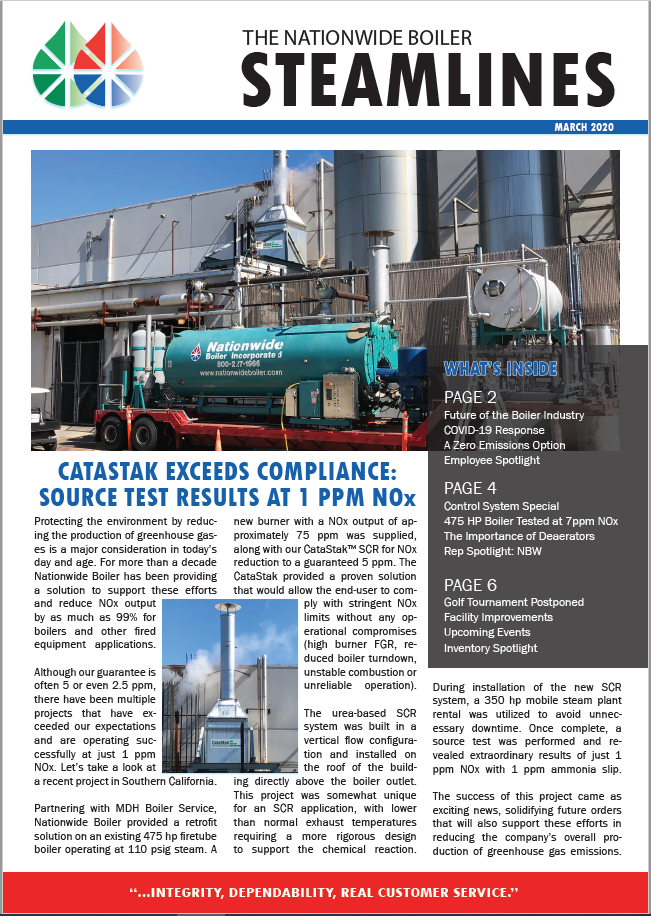Deaeration of boiler feed water is primarily known to remove dissolved oxygen from the water, however, there are four additional advantages of utilizing a deaerator: (1) carbon dioxide removal, (2) improved operation, (3) improved heat transfer, and (4) energy savings. In this month’s edition of Boiler Basics 101, we review the importance of including deaerators as part of your boiler plant.
Corrosion in boilers from dissolved gases leads to reduced heat transfer and efficiency losses. Both oxygen and carbon dioxide, if not removed from the water entering a boiler, will cause corrosion. Dissolved oxygen will attach to the metallic components of a steam system and form oxides, or rust, on boiler heat transfer surfaces. If carbon dioxide is present with the oxygen, the two gases together can be up to 40 percent more corrosive than if they were acting individually. Removing non-condensable gases and limiting or avoiding corrosion will greatly improve heat transfer.
Deaerators also serve the purpose of pre-heating the water before it enters the boiler. This process saves energy by recovering flash and exhaust steam from plant returns, energy that would normally be lost to the atmosphere, and utilizing it to pre-heat the feedwater. This recovered steam can account for 20 percent of the fuel typically required to provide heat for that process. Pre-heating the feedwater will also greatly reduce the chance of thermal shock caused by the expansion and contraction of heating surfaces and will ultimately improve the operation of your boiler.
Deaerators and atmospheric feedwater systems both have the same purpose and are made up of several individual devices including feed pumps, a corrosion resistant receiver tank, and a control panel. A deaerator does its job by mixing steam with soft water inside a pressurized tank, removing oxygen molecules which are then vented into the atmosphere. Atmospheric feedwater systems are non-pressurized and perform the same function while operating at a lower (atmospheric) pressure. A notable disadvantage of operating at a lower pressure is that a lesser amount of dissolved gases are removed. Although atmospheric systems are more cost effective, process requirements will dictate which system is ideal for your application.
Overall, if boiler feed water is not properly deaerated, corrosion will occur, and a boiler will operate less efficiently with a higher possibility of facing costly downtime and boiler repairs. Nationwide Boiler provides new deaerators and maintains a rental fleet of deaerating boiler feedwater systems for both low and high pressure applications. Our systems range in size for boilers 24,000 to 225,000 lb/hr, and are configured one of two ways: a skid-mounted deaerator with feed pump stand or complete mobile feedwater system including the deaerator, feed water pumps, water softener, and chemical feed system, all pre-piped and wired and installed inside of a trailer-mounted van.
Be sure to check out our previous Boiler Basics 101 blogs and stay tuned for the next edition!



